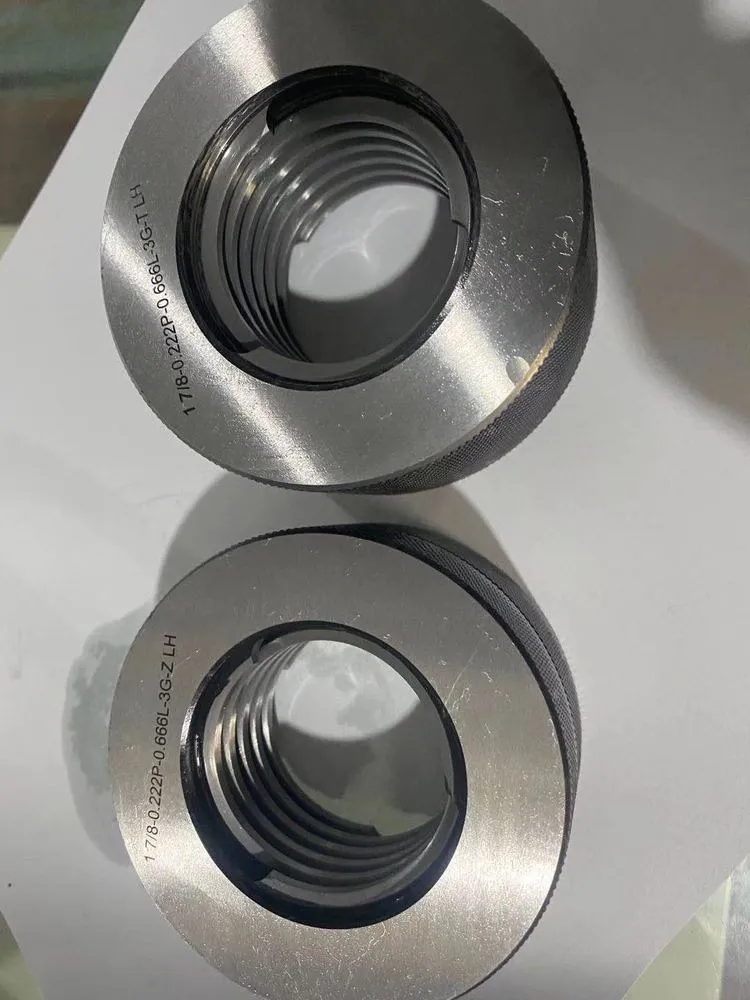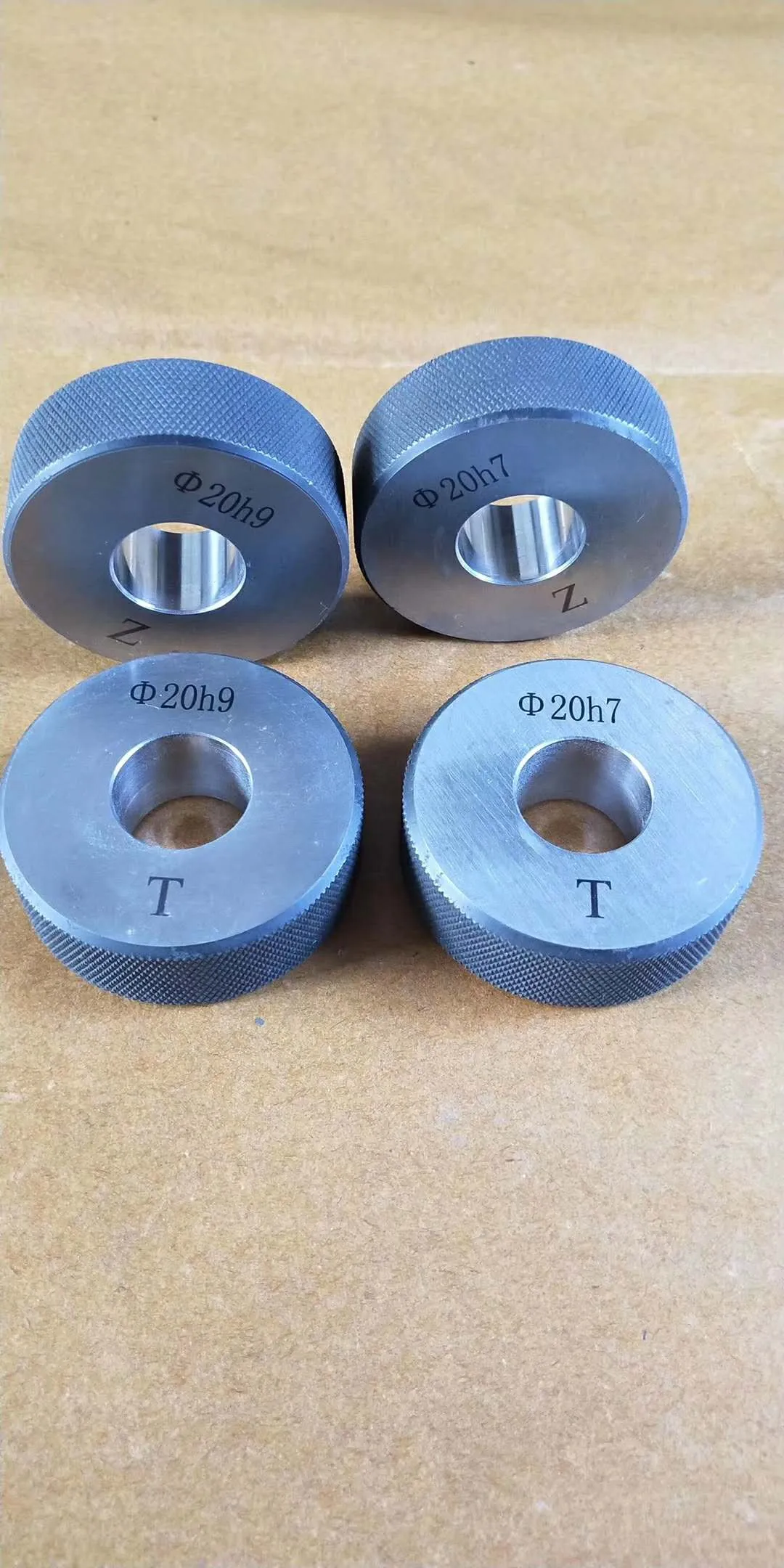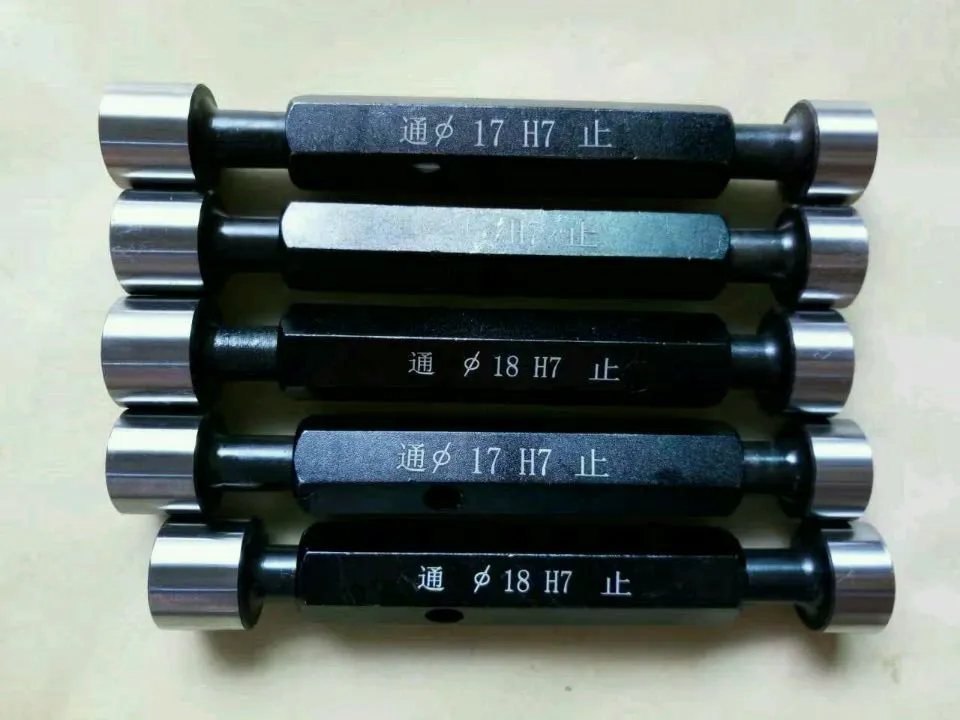Мај . 30, 2025 17:02 Назад на списокот
Precision Measurement: Plug Gauges in Industrial Quality Control
In the realm of industrial manufacturing, precision is non-negotiable. Plug gauges, plain plug gauges, and plug ring gauges are indispensable tools for ensuring components meet exacting tolerances. For wholesalers supplying these critical instruments, understanding their design, application, and maintenance is key to serving high-volume industries like automotive, aerospace, and machinery production. This article explores the role of plug gauges in quality control, emphasizing strategies for bulk procurement, material selection, and compliance to meet the demands of large-scale manufacturing.

Plug Gauges: The Backbone of Dimensional Accuracy in Manufacturing
Plug gauges are mechanical inspection tools used to verify the conformity of hole diameters and shaft dimensions against specified limits. This binary pass/fail system ensures rapid, reliable quality checks—critical for high-volume production lines.
For wholesalers, the appeal lies in standardization. Bulk buyers, such as automotive , require thousands of identical plug gauges to maintain consistency across global supply chains. Offering gauges calibrated to international standards ensures compatibility with systems, reducing integration delays. Additionally, modular designs allow clients to interchange gauge tips, minimizing inventory costs.
Furthermore, the standardization of plug gauges facilitates ease of use and training for technicians across different facilities. With a universal design, technicians do not need specialized training for each type of gauge, streamlining operations and enhancing productivity. This uniformity also simplifies maintenance and repairs, as spare parts are interchangeable and readily available.

Plain Plug Gauges: Streamlining Cylindrical Hole Verification
Plain plug gauges specialize in measuring the internal diameters of cylindrical holes, such as engine bores or hydraulic valve ports. These gauges feature a single or double-ended design, with one side matching the minimum acceptable hole size and the other reflecting the maximum limit.
In wholesale settings, material choice is paramount. High-carbon steel gauges are cost-effective for general use, while tungsten carbide variants offer longevity in abrasive environments like cast iron machining. Wholesalers should highlight certifications like ANSI/ASME B89.1.5 to assure clients of gauge accuracy. Bulk packaging solutions—such as foam-lined crates for shock protection—also add value, reducing transit damage risks.

Plug Ring Gauges: Precision for External Diameter Inspection
Plug ring gauges serve the inverse function of plain plug gauges, verifying the external diameters of shafts, pins, or threaded fasteners.
For wholesalers, customization drives demand. Aerospace manufacturers, for instance, may require plug ring gauges with ultra-tight tolerances for turbine shafts. Collaborating with manufacturers to offer laser-etched tolerance markings or anti-corrosive coatings enhances marketability. Bulk buyers also prioritize traceability; providing calibration reports with each batch builds trust and streamlines audits.
Material and Certification Standards for Wholesale Plug Gauge Success
The durability and accuracy of plug gauges hinge on material and manufacturing rigor. Key considerations include:
Carbon Steel: Economical for general-purpose use.
Stainless Steel: Resists rust in humid or chemical-heavy environments.
Carbide: Ideal for high-wear applications like gearbox component inspection.
Certifications:ISO/IEC 17025 accreditation for calibration laboratories.
Wholesalers must partner with certified manufacturers to guarantee consistency across bulk orders. Offering bundled calibration services or multi-year maintenance contracts can differentiate suppliers in competitive markets.
FAQ: Addressing Wholesale Plug Gauge Procurement Challenges
What distinguishes a plain plug gauge from a plug ring gauge?
A plain plug gauge checks internal hole diameters, while a plug ring gauge verifies external shaft dimensions. The former is inserted into a hole, the latter slid over a component.
How often should plug gauges be recalibrated in automotive production?
High-volume lines should recalibrate plug gauges every 3–6 months. Factors like material hardness and usage frequency may shorten intervals.
Are carbide plug gauges worth the higher cost for bulk buyers?
Yes. Carbide’s wear resistance reduces replacement frequency, offering lower total cost of ownership despite higher upfront prices.
Can plug gauges be customized for non-cylindrical applications?
Yes. Specialty plug gauges with hexagonal or square profiles are available for unique components, though lead times and costs increase.
What certifications are critical when sourcing plug gauges wholesale?
Prioritize ISO 17025, dimensional standards, and hazardous substance compliance.
For wholesalers, plug gauges are more than inspection tools—they are enablers of industrial precision. By mastering material science, certifications, and client-specific customization, distributors can deliver unmatched value to bulk buyers. In an era where microns define quality, the right plain plug gauges and plug ring gauges empower manufacturers to achieve excellence at scale, solidifying their trust in wholesale partners.
Moreover, the versatility of these gauges allows them to be adapted for various applications across different industries. Whether it's in the automotive sector, aerospace, or precision machinery, wholesalers can provide tailored solutions that meet the unique needs of each client. This focus on customization not only enhances the precision of manufacturing processes but also fosters long-term relationships built on reliability and expertise. As technology evolves, wholesalers who continue to innovate and stay abreast of industry standards will remain indispensable partners in driving industrial precision forward.
-
Rising Demand for Corrosion-Resistant Metal Valves in Wholesale MarketsВестиMay.30,2025
-
Revolutionizing Industrial Workholding for Fabrication Table ClampsВестиMay.30,2025
-
Precision Measurement: Plug Gauges in Industrial Quality ControlВестиMay.30,2025
-
Material Selection and Durability in Heavy-Duty Welding Table WorkbenchesВестиMay.30,2025
-
Durability and Maintenance of Granite Fabrication TablesВестиMay.30,2025
-
Precision in Measurement: Why a Quality Inspection Platform MattersВестиMay.29,2025
Поврзани производи









